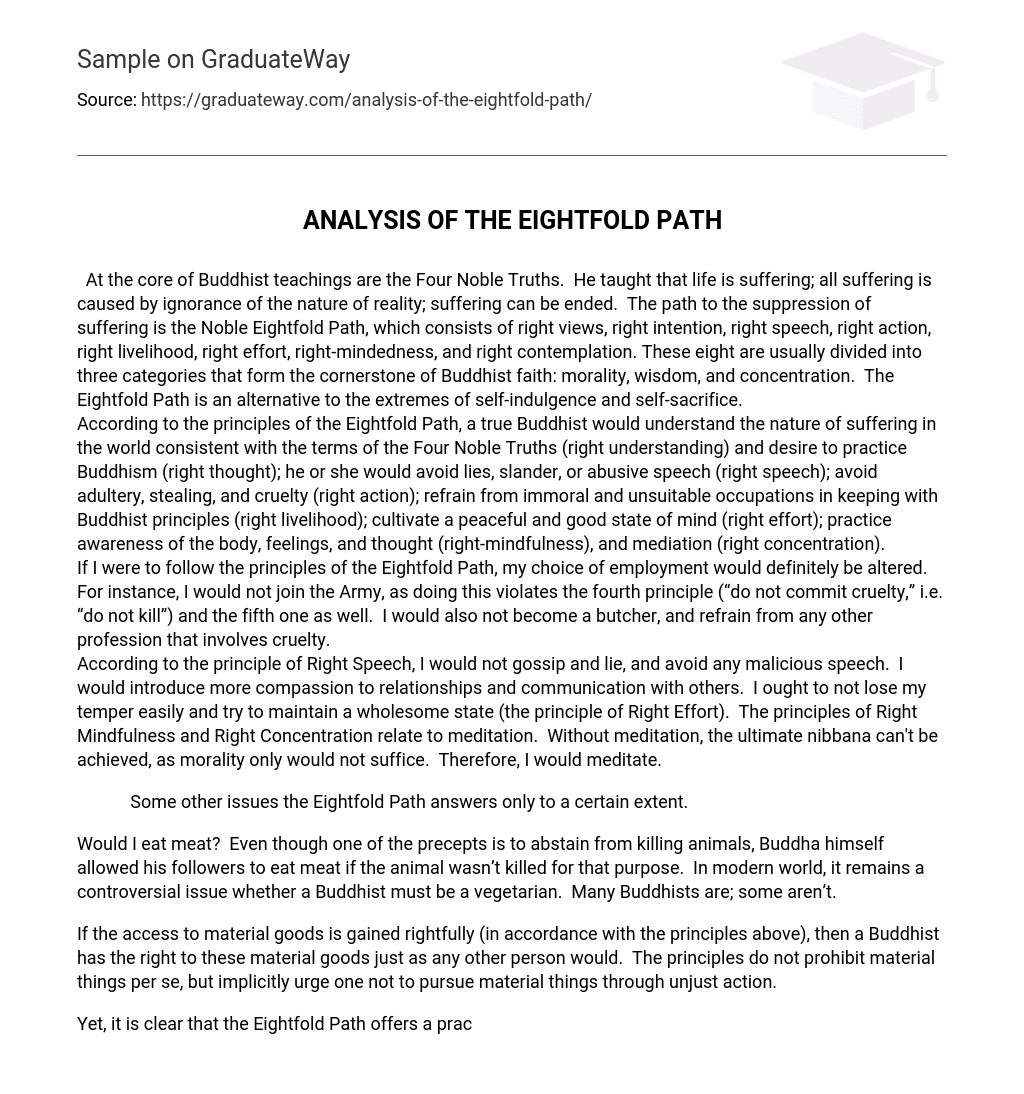At the core of Buddhist teachings are the Four Noble Truths. He taught that life is suffering; all suffering is caused by ignorance of the nature of reality; suffering can be ended. The path to the suppression of suffering is the Noble Eightfold Path, which consists of right views, right intention, right speech, right action, right livelihood, right effort, right-mindedness, and right contemplation. These eight are usually divided into three categories that form the cornerstone of Buddhist faith: morality, wisdom, and concentration. The Eightfold Path is an alternative to the extremes of self-indulgence and self-sacrifice.
According to the principles of the Eightfold Path, a true Buddhist would understand the nature of suffering in the world consistent with the terms of the Four Noble Truths (right understanding) and desire to practice Buddhism (right thought); he or she would avoid lies, slander, or abusive speech (right speech); avoid adultery, stealing, and cruelty (right action); refrain from immoral and unsuitable occupations in keeping with Buddhist principles (right livelihood); cultivate a peaceful and good state of mind (right effort); practice awareness of the body, feelings, and thought (right-mindfulness), and mediation (right concentration).
If I were to follow the principles of the Eightfold Path, my choice of employment would definitely be altered. For instance, I would not join the Army, as doing this violates the fourth principle (“do not commit cruelty,” i.e. “do not kill”) and the fifth one as well. I would also not become a butcher, and refrain from any other profession that involves cruelty.
According to the principle of Right Speech, I would not gossip and lie, and avoid any malicious speech. I would introduce more compassion to relationships and communication with others. I ought to not lose my temper easily and try to maintain a wholesome state (the principle of Right Effort). The principles of Right Mindfulness and Right Concentration relate to meditation. Without meditation, the ultimate nibbana can’t be achieved, as morality only would not suffice. Therefore, I would meditate.
Some other issues the Eightfold Path answers only to a certain extent.
Would I eat meat? Even though one of the precepts is to abstain from killing animals, Buddha himself allowed his followers to eat meat if the animal wasn’t killed for that purpose. In modern world, it remains a controversial issue whether a Buddhist must be a vegetarian. Many Buddhists are; some aren’t.
If the access to material goods is gained rightfully (in accordance with the principles above), then a Buddhist has the right to these material goods just as any other person would. The principles do not prohibit material things per se, but implicitly urge one not to pursue material things through unjust action.
Yet, it is clear that the Eightfold Path offers a practical way to achieve
Enlightenment. It is not a passive religion, but rather requires one’s own efforts to achieve nibbana. It is also clear that I would have to practice the eight principles simultaneously and incorporated into person’s life entirely, as all the eight principles harmoniously co-exist.
Works Cited
Flanagan, Anthony. The Four Noble Truths: the Eightfold Path. http://buddhism.about.com/library/bleightpath.htm





